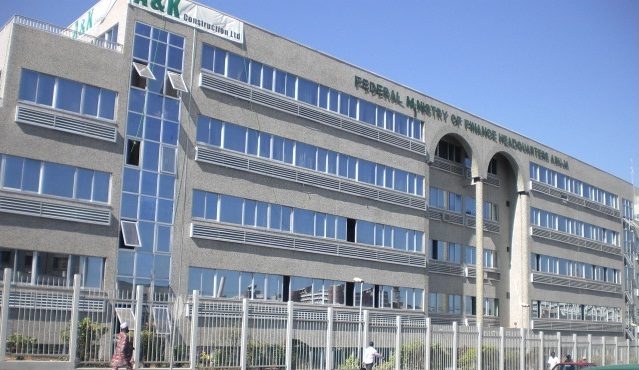In Warri, Delta State, hope came alive as hundreds of women gathered at Urhobo College to benefit from Glo Foundation’s “Giving Back Together” Food Drive, a humanitarian outreach rooted in the culture of care and impact that defines Globacom’s corporate philosophy. Chiemelie Ezeobi writes that the event, which saw widows, elderly women, and disadvantaged groups receive essential food items, marked the latest stop in the foundation’s nationwide effort to cushion the effects of economic hardship on vulnerable families
From classrooms to hospitals, markets to communities, every initiative carries the same heartbeat: a culture of care, compassion, and impact. This ethos was once again on display on Saturday in Warri, Delta State, as thousands of women converged on Urhobo College to benefit from the Glo Foundation’s “Giving Back Together” initiative, a nationwide Food Drive aimed at alleviating hunger and supporting struggling families across Nigeria.
The programme, which targets the most vulnerable groups, saw widows, elderly women, and disadvantaged individuals receive food packs containing rice, garri, semovita, spaghetti, vegetable oil, tomato paste, sardines, seasoning cubes, noodles, and other essential items. Beneficiaries described the outreach as a timely lifeline amid the country’s economic hardship.
The event marked the continuation of the special intervention programme by Globacom, through its philanthropic arm, Glo Foundation, designed to cushion the effects of rising food costs and inflation on low-income households. Women from communities such as Warri North, Warri South, Aladja, Ughelli South, Udu, and Uvwie gathered shortly after the monthly environmental sanitation exercise to receive their packages.
Speaking at the event, Globacom’s Head of Corporate Social Responsibility, Mrs. Jumobi Mofe-Damijo, explained that the initiative was deliberately structured to reach the most disadvantaged groups in society, especially women and children.
“Our Food Drive is not just for anyone. It is targeted at the most vulnerable segment of the Nigerian society, that is women and children. When we help them, we are helping the society at large,” she enthused.
She further noted that after successful activations in Lagos and other states, it was Delta’s turn to benefit. “The food drive had become a quick, go-to route for the company to reach out to largely the female population, who constitute the bulk of the disadvantaged in every society,” she added.
Present at the event were several dignitaries, including Barr. (Mrs.) Jereoma Sam-Oligida, wife of the Delta State Commissioner for Trade and Investment, who represented the Delta First Lady; Mrs. Ofoni Maureen, wife of the Chairman, Uvwie Local Government; Mrs. Abies Oyibode, wife of the Chairman, Udu Local Government; and Olorogun Vivian Egbo, wife of the Chairman, Ughelli North Local Government.
Gratitude and Relief
The atmosphere in Warri was filled with excitement, singing, and dancing as grateful women celebrated the unexpected support.
Princess Omo-Udoyo, a widow from Ughelli North, could hardly contain her joy. “I have not seen this before. I thank God and Glo Foundation for this gift,” she said with a beaming smile.
For Mrs. Esther Okoro, from Otu Jeremi in Ughelli South, the gesture was a divine blessing. Her response was simply prayers: “God will lift the company and people who have done this. He will lift them higher and higher. They will never lack anything. For doing this for us today, I say may God protect them. You will always go higher.”
From Lagos to Delta and Beyond
The Glo Food Drive had earlier made impactful stops in Lagos, including Bariga, Ajah, and for staff of the Lagos Waste Management Authority (LAWMA), as well as during the iconic Ojude Oba festival. With Warri now added to the list, the foundation’s train is expected to berth in more key cities across Nigeria in the months ahead.
The initiative has been widely recognised as a model of sustainable corporate giving. By engaging local communities and partnering with established food aid networks, the Foundation ensures that relief materials reach those who need them most.
Following successful rollouts in Lagos communities like Bariga and Ikota, and now in Delta, the Food Drive is becoming a symbol of hope for thousands of families who are daily confronted with the harsh realities of inflation and unemployment.
A Nationwide Humanitarian Drive
Food insecurity remains a pressing challenge in Nigeria. Millions of households are struggling to afford basic necessities, as inflation and economic downturns continue to erode purchasing power. Against this backdrop, Globacom’s intervention has brought a sense of relief and renewed faith to many.
Volunteers from Globacom also played a central role in the distribution exercise, embodying the foundation’s message of collective responsibility and shared compassion. Their participation, beyond the corporate obligation, reflects the company’s internal culture of empathy and service.
According to observers, the Giving Back Together initiative goes beyond food distribution to a movement to restore dignity, build community trust, and encourage other corporate entities to adopt a people-centered approach to social responsibility.
A Model for Corporate-Led Change
From Ilaje to Bariga, Ikota, Effurun, and now Warri, Glo Foundation’s Food Drive continues to demonstrate how sustained corporate involvement can address social challenges at the grassroots. The Foundation’s steady expansion underscores a long-term vision to build partnerships, deepen community engagement, and create measurable impact.
As Mrs. Mofe-Damijo emphasised, the goal is not only to give food but to inspire hope and change. The initiative, she said, is about making a meaningful difference across Nigeria’s communities and the Foundation intends to continue expanding its reach.
Essentially, Glo Foundation’s Food Drive is more than just a corporate social responsibility project. It has become a life-changing intervention for families navigating economic hardship.
By placing care, compassion, and impact at the centre of its operations, the Foundation is setting a new standard for corporate-led humanitarian efforts in Nigeria, proving that when businesses give back together, entire communities rise together.

